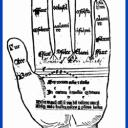Yahoo Answers is shutting down on May 4th, 2021 (Eastern Time) and beginning April 20th, 2021 (Eastern Time) the Yahoo Answers website will be in read-only mode. There will be no changes to other Yahoo properties or services, or your Yahoo account. You can find more information about the Yahoo Answers shutdown and how to download your data on this help page.
Trending News
Music composition in college?
If I take it in college, what sort of things would I learn/work on in those classes?
Thanks! :)
3 Answers
- MamiankaLv 76 years ago
If you intend to MAJOR in music composition, you must submit completed scores - and that presupposes a LOT of theory and composing knowledge that you learned in HS - and before. If you just take a class - wait until after you know enough theory to actually write something sensible. You do not just "make up stuff and write it down" - you will be really embarrassed if you tried that! If you want to start now, download a notation program like Finale Notepad ( 2102 is the latest - free, and compatible with the professional version alter). Learn to organize your musical thoughts, and you can hear i played back instantaneously. I wish this had been around when I was in graduate school as a theory major - comparatively, I feel like we were writing on stone slabs! Good luck - work hard, do well.
Added - sorry for typos (repaired.) Cannot type while watching the Yankees game . .
- 6 years ago
I haven't taken college music composition but I've taken something similar because I had to learn music theory to get my Royal Conservatory of Music Diploma.
Basically, I think you would begin with music rudiments (naming notes, rhythms, etc.) if you haven't learned it already. If you have, I've heard that they take you straight to the next course. Afterwards, you would learn music history and harmony. History usually goes from medieval music (gregorian chant), renaissance, baroque, classical, romantic, post-romantic, and then you might explore some modern music as well. The weight of your program will focus on harmony, counterpoint and analysis. It teaches you chords, how the progress/regress, which chords sound nice side by side, and different styles. For example, jazz music uses lots of seventh chords, whereas baroque music uses alot of dominant-tonic progression. Counterpoint is quite similar but instead of writing in SATB you would write in two voices and explore inverting intervals. Finally, analysis is studying a piece of music from the beginning to the end and answering questions about it. Have fun! Music composition can be very interesting :)
- lainiebskyLv 76 years ago
You'd learn theory in depth, harmonic analysis, chord structures, different ways of modulating, what to avoid, various melodic forms, the different ways a piece can be structured, how to use that structure to advantage, and so on.




